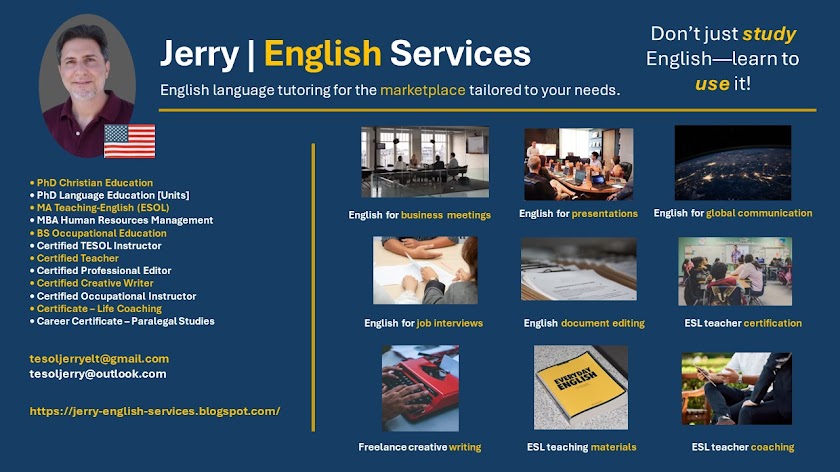4 Effective Methods for Developing Vocabulary and Grammar for ESL Students
In conversation classes, English language learners often have difficulties putting together sentences. Either they are unsure about the structure (grammar) or are searching for the right words. The resulting lags in conversations can be detrimental to free-flowing, confidence-building ESL class goals. What can ESOL students do to develop a wider range of vocabulary and accuracy? The following four methods may help answer that question.
1. Read, Read, Read
Reading provides examples of structure and uses vocabulary in context. Through text, you can develop both grammar and vocabulary. However, there are a few guidelines to this:
(A) Read things in English that you have read in your mother tongue. However, the material should be of interest to you;
(B) Read a book in English from your childhood that you enjoyed;
(C) Read something in English that you like to read or want to know more about. The bottom line is to read materials that capture your interest.
The Important aspect of each suggestion above is that you are either familiar with the material or would enjoy reading the material. Without either of those elements, reading becomes a dry, boring, dull, unproductive experience.
2. Language in Use
If you have the opportunity, try to engage people in conversations in English around a single subject. Focus on a specific subject such as investing, pets, or baseball. Prior to this conversation, you can go over a list of words or phrases that might be used.
Another way of using the language is by putting yourself in specific situations where certain structures, phrases, or expressions must be used. If you're shy about doing that, look for video clips of people doing the same thing. Through repetition of specific situations combined with observation, you'll begin to pick up the appropriate language used in those types of exchanges.
3. Hire a Tutor
If you’re not in an English language environment or immersed in English, a tutor can be just as effective if not more so. That’s because tutors can provide feedback and a more comfortable learning environment.
Take note: Do not just go with free talking about anything under the sun (a mistake many English language teachers make). There must be focus. That means in each class you are aiming your communications toward specific topical or functional goals.
Your lessons must also provide feedback. Without corrections and suggestions from your tutor, you won't be able to sharpen your skills. You're meeting will be little more than spinning your wheels—just talking.
4. Listen to and Sing Along with Songs
Songs can offer such benefits as intonation enhancement, pronunciation improvement. But there are two more benefits you may not be aware of:
(A) Songs can guide you into correct grammar.
(B) You can pick up common or everyday expressions.
By repeating the lyrics and singing your heart out, you are embedding that structure and vocabulary into your mind, making it readily available when you need it. Older music is especially helpful since it is clearer, contains less slang, and more complete statements. By way of music, you can not only enjoy yourself, but develop your English skills in a fun way.
Not Recommended: Movies or Sitcoms
I do not recommend trying to pick up English from movies. Movies are rife with idiom which is extremely difficult to pick up in fast-paced movie scenes. Sitcoms are the same, if not more so. Therefore, if you want to be entertained, watch a movie or sitcom. If your goal is to study English, these can be frustrating choices.
Last Things
The tips above are time-tested in my own teaching experience. Over the past two decades, I've communicated with hundreds of adult English language learners from all walks of life and backgrounds, even conducted research, and discovered these methods successful learners use. Give them a try, and drop me a message letting me know how they work for you.
__________
This article is based on an answer I wrote some time ago to a question on Quora: What are some efficient methods to learn English vocabulary and grammar for a non-native speaker of English?
Author: Jerry S.
Author bio: Jerry is a marketplace English language trainer of 21 years, with a wide range of experience and education ranging from bachelor to doctorate degrees in various fields, who writes articles, blogs, devotions, e-books, academic papers, and more.
Image source: https://pixabay.com/photos/girl-book-sunglasses-casual-7876505/


No comments:
Post a Comment